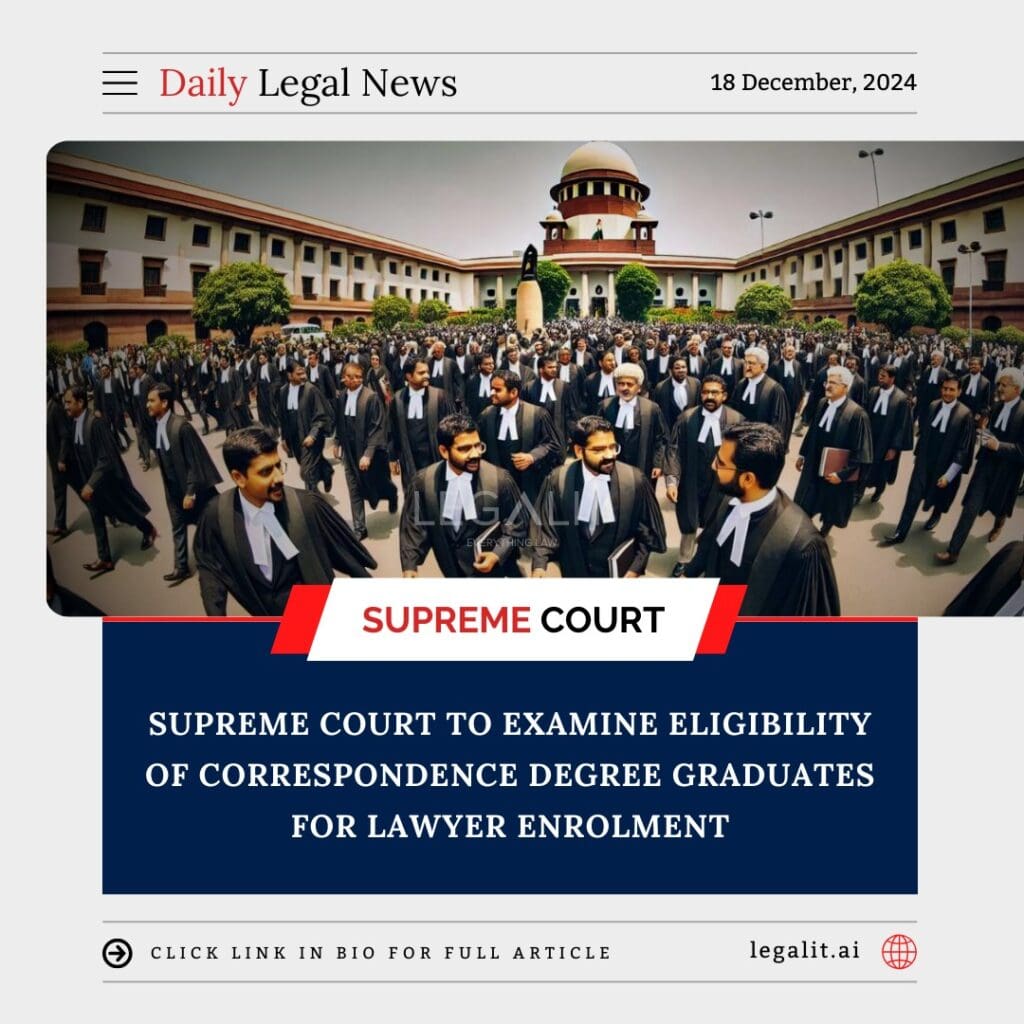
The Supreme Court of India has agreed to examine whether individuals with law degrees obtained through correspondence courses or distance education can be denied enrolment as advocates. This issue has far-reaching implications for the legal profession and the broader education system in India.
Background:
The matter arose from a petition challenging the Bar Council of India (BCI) rules that exclude correspondence and distance education law graduates from being enrolled as advocates. The BCI, the regulatory body for legal education and the legal profession, has consistently maintained that legal education requires hands-on experience and participation in regular classes, which correspondence courses lack.
Petitioners have argued that denying enrolment to correspondence degree holders violates their right to equality and opportunity. They contend that advancements in technology have significantly improved the quality of distance education, making it comparable to regular programs.
Key Arguments:
- Petitioners’ Stand:
- Distance education programs are increasingly credible and widely recognized across various fields.
- Exclusionary rules violate the constitutional rights of students who pursue law degrees through correspondence due to financial or geographical constraints.
- The quality of education, not the mode of delivery, should determine a candidate’s eligibility.
- BCI’s Stand:
- Law as a profession requires rigorous, practical training, which distance education programs cannot provide.
- Classroom attendance, moot courts, and interactive sessions are essential for developing critical skills like legal analysis and argumentation.
- The integrity and competence of the legal profession could be compromised if enrolment standards are diluted.
Supreme Court’s Observations:
The Supreme Court bench, led by Chief Justice Sanjiv Khanna, emphasized the importance of balancing inclusivity with the need to uphold professional standards. It observed:
- The increasing reliance on technology in education calls for a reevaluation of conventional norms.
- The court will need to examine whether denying enrolment based solely on the mode of education is reasonable and justified.
Legal and Policy Implications:
If the Supreme Court rules in favor of correspondence degree holders, the decision could lead to:
- Greater inclusivity in the legal profession, enabling students from remote areas and underserved communities to practice law.
- The BCI revisiting its rules to create a framework for assessing the quality of distance law education programs.
- A potential increase in the number of advocates, which could have a long-term impact on the profession.
On the other hand, if the court upholds the BCI’s rules, correspondence graduates may face limited opportunities, emphasizing the need for more accessible regular law programs.
Broader Context:
The case highlights the evolving dynamics of education in India, where distance learning is gaining traction due to its flexibility and affordability. While professional courses like law, medicine, and engineering have traditionally required hands-on training, technological advancements and hybrid learning models are challenging these norms.
Conclusion:
The Supreme Court’s ruling on this issue will be a landmark decision with significant consequences for the legal profession and the education sector. The judgment will determine whether correspondence law graduates can claim their rightful place in the legal fraternity or whether traditional norms will continue to dominate the field. The case underscores the need to adapt to changing times while maintaining the integrity of professional standards.